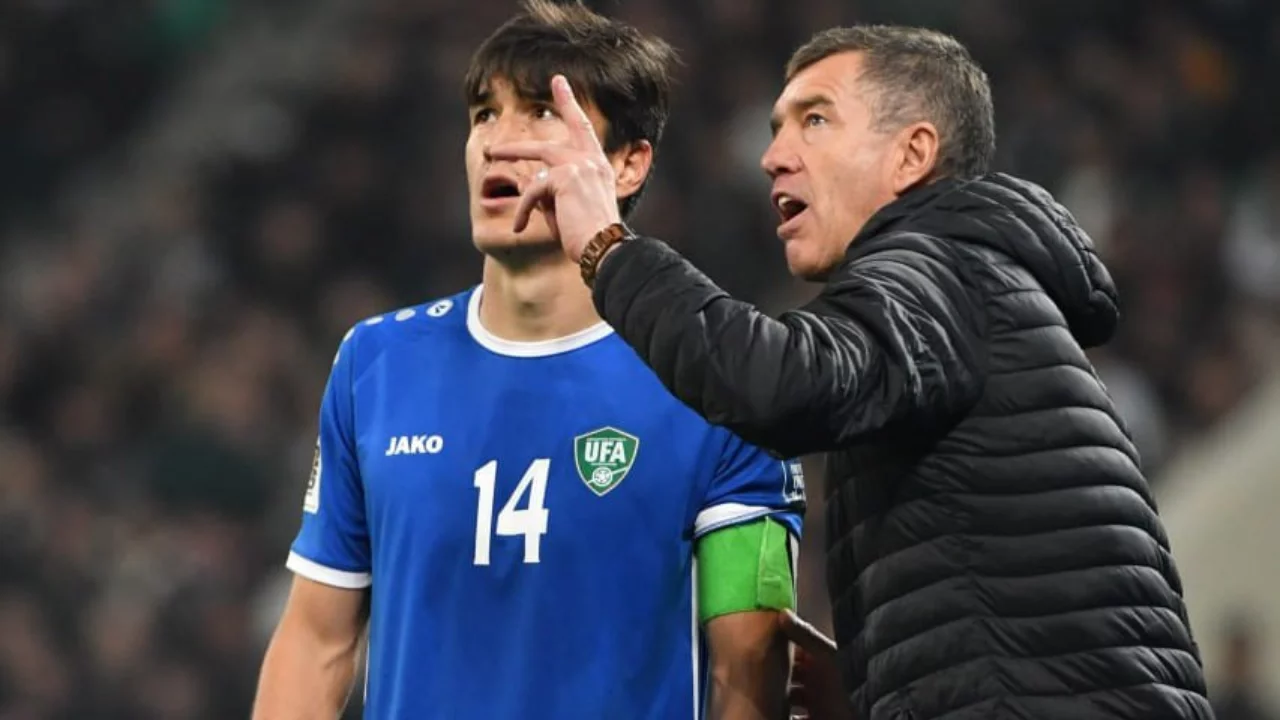“Legacy.” Dedicated to Srečko Katanec

Today is a wedding. One of the characteristic and familiar features of this ceremony is probably familiar to you as well – one after another, someone comes out to speak and praises now this one, now that one, raising them to the skies. Today is such a day, whoever we praise, it will be appropriate, and now it’s the turn to talk about Srečko Katanec.
Although, for the first time in our history, we reached the World Cup, another tradition was not broken this time either – once again, we could not complete the World Cup qualification with a single coach. After 6 rounds of the last stage, Srečko Katanec was forced to leave the team due to health problems, and his replacement, Temur Kapadze, coped with the task.
You know, it’s always difficult for new coaches. Because resignations don’t happen for nothing, and a coach who comes newly to the team always has to change many things. In most cases, there are two reasons that bring a coach to resignation, and in football, we have always studied and observed such situations.
First, the team’s play and results drop, the internal atmosphere deteriorates, conflicts arise between the player and the coach, etc. It’s not easy for a new coach. Yes, from the point of view of pressure, it might be easier, the worse the team is, the easier it seems to change for the better, but it requires immense effort.
The team has not achieved success, which means the style used by the previous coach did not suit the players, the coach needs to think of a new, more suitable one and test it out. Due to bad results, the players’ condition is not good either, there is little self-confidence in the team, and even a little failure, a little lack of connection in play can break the team. To convince them that they are capable of great results, that the new style can bring results is not easy either, it requires experience and competence from the coach. The most common resignations that we observe mostly happen precisely for this reason.
So far, for our previous coaches who accepted the team in the middle of a tournament, this issue always stood at the forefront. Especially, ask Mirjalol Qosimov, he twice got into such situations, he had to take over and fight with a defeated team.
Second, the completely opposite situation. Usually, one coach achieves all the successes with the team, wins trophies and leaves because his contract ended or because of a bigger offer.
For the coach who comes in his place, the situation is even more difficult. Yes, the team is strong, just now won trophies, had successful seasons, but is it easy to continue exactly the same way? Completely repeating the previous coach is impossible, introducing your own style and ideas is even more difficult – you have to convince the players in this. After all, they just recently succeeded with completely different styles and ideas, didn’t they?
There are also problems with motivation – it’s not always easy to motivate players who have already won trophies to fight for the same trophies again. You have to change something, break the working mechanism, propose something even better. The hardest part is that the pressure will be great. Staying at the top is hard, maybe even with the old coach a drop was expected, but now if there is a drop, all the blame will fall on the new coach. The pressure is great.
Coming to the team in such conditions is even harder, remember how much criticism fell on Moyes who came after Ferguson at "MU", Benitez who came after treble-winning Mourinho at "Inter", Pep Guardiola who came after Heynckes at "Bayern". In general, such appointments in most cases end in failure, repeating previous achievements becomes impossible.
In short, leading a new team is always a difficult job, and Temur Kapadze handled it, brought the task to the end. It was a bit easier for him, because the legacy left to him does not resemble either of the two situations mentioned above. The team was not in the whirlpool of failure, a good environment was formed, all the players were focused on one goal. There was no need to come up with or change a new style – it was enough to make a few touches to the ready, working mechanism.
Nor was it the second situation. He did not take over a team that had won trophies, fallen into a motivational void and needed fresh blood. In a ship that was already on its course, moving forward without deviation, only the captain changed, that’s all. This incident is completely different from most resignations we know, including all the coaching changes that have happened in our national team so far.
Of course, for Temur Kapadze, this was also a test of its own kind, as I wrote before, this is like taking a penalty. There is huge pressure on the taker, if he doesn’t miss the penalty, if he scores a goal, everyone takes it as normal, after all, the penalty must be scored. But if he misses, all the criticism is directed at him, he becomes the loser who lost a ready victory. For taking on such a very risky task, Temur deserves thanks, but this article is about Srečko Katanec.
It was precisely Katanec who was the architect of this successful team, it is difficult to deny this. It was Katanec who among almost fifty candidates gathered a stable lineup that we can now easily list even if we just woke up. It was Katanec who tried many different styles and finally introduced the scheme that is now working and is probably the most suitable and reliable for these players. It was Katanec who taught our players willpower, we started making comebacks, regardless of the score we started to believe that there is a possibility of a successful end. The important draw with Iran probably happened thanks to Kapadze’s tactical preparation, I do not deny it, but did the confidence in our players that such a game is possible with Iran not arise precisely thanks to previous matches with Iran?
Many say – it happened simply because the number of places became 48, we had beaten the opponents Katanec played against before. Maybe it’s true, maybe if the 32-team format had remained, with more difficult opponents, the old story might have repeated.
But this is actually a slightly wrong approach. Why should we emphasize “ifs” when we have ready facts? Above we talked about legacy, what kind of legacy did Srečko Katanec inherit? After all, in the previous World Cup qualification we could not even enter the top 12 teams. Why do we accept becoming a World Cup participant in the top six as something ordinary?
There has been much criticism that our team has been paying too much attention to defense, especially the game against Qatar is remembered for Katanec’s most unsuccessful decisions.
Now look, why in the second game against Kyrgyzstan, even playing for a long time with one man more, we could not score more than one goal? In the second match against UAE, couldn’t we have conceded a goal in the final minutes? What I mean is, the current team actually does not differ much from the one during Katanec’s era, we are still very cautious, not much has changed. This proves that it was not because of big changes, but precisely with Srečko Katanec’s team, his style, idea, and scheme that we won the World Cup ticket.
Is this good, or bad, were we actually capable of playing stronger than this – I don’t know, the next coaches will show this, of course, we wish Temur Kapadze luck, and believe that our team will conquer even higher goals.
But the World Cup ticket belongs to Srečko Katanec’s team. This cannot be denied. And we do not need to deny it. Mister Srečko, thank you for everything. May your life be long.
Kahramon Aslanov
Read “Zamin” on Telegram! Ctrl
Enter
Found a mistake?
Select the phrase and press Ctrl+Enter 





















